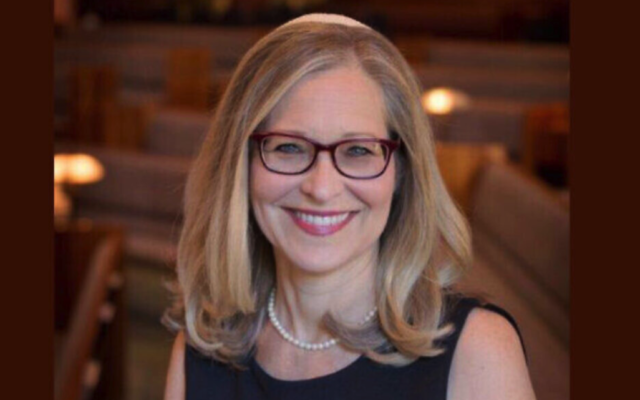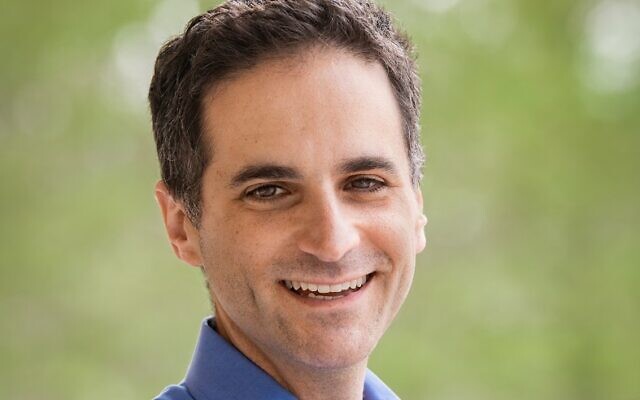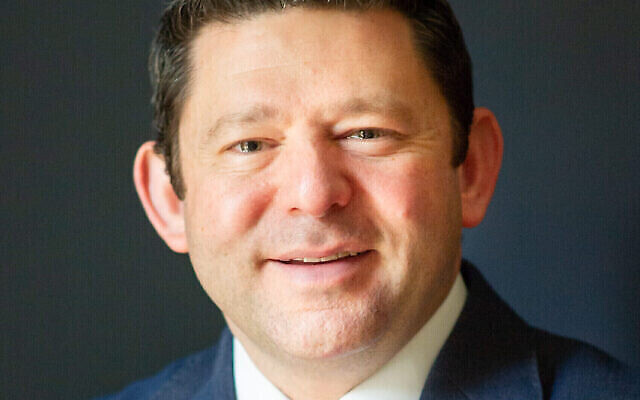Atlanta Rabbis Tread Softly Into Israeli Crisis
For now, synagogues are only holding programs for their own congregants.

For the last 12 weeks, hundreds of thousands of Israelis have flocked to the streets to protest the efforts of Prime Minister Benjamin Netanyahu’s coalition government to overhaul the country’s judicial system. Most recently, more than one-half million Israelis carried Israeli flags and various posters in more than 100 cities across the country to plead with the government to halt what critics are calling a drastic change in the country’s balance of power that would result in a loss of democracy.
And for the last five weeks – through the last Saturday of March – Israelis in Atlanta, as well as concerned American Jews, have held supportive protests in front of the Consulate General of Israel to the Southeast in Midtown Atlanta. At the same time, however, only a few Atlanta rabbis have dared to tackle the controversial subject at their congregations.
Temple Sinai is one exception to that apparent rule. For weeks, in the Reform congregation’s newsletters, the rabbis have boldly broached the subject. “We are definitely finding ways to address the judicial upheaval and growing rifts in Israeli society,” said Senior Rabbi Ron Segal. In addition to visiting teachers and Shabbat morning Torah studies, Temple Sinai is also planning a virtual evening discussion after Passover “to which all in the congregation will be invited.”
And that is how most Atlanta rabbis appear to be addressing the current crisis in Israel’s democracy, if at all: Only within their congregations. As Temple Beth Tikvah Rabbi Alexandria Shuval-Weiner noted, “Many of us are holding space for conversations within our congregations, but [we] are taking the lead from our community Israelis at this point.”

In other congregations, the discussions about the turmoil occurring in Israeli society are kept very hush-hush, with only congregants invited and non-members strictly kept away. The conversations are “designed to be a safe place to learn and ask questions,” as one rabbi described it.
On the other hand, Rabbi Natan Trief, director of adult learning at Temple Sinai, was open about the 10-part Melton class focused on Israeli identity that he just started teaching in March. “We are discussing the upheaval at length,” he said. But again, the classes are only for Temple Sinai congregants.

Trief, who holds an Israeli passport along with his American passport, told the AJT that among his congregants, he detects “mostly confusion and consternation. There’s a lot of anxiety as they learn more. Many feel the judicial overhaul caught everyone by surprise.” As he pointed out, Netanyahu’s Likud Party didn’t talk about its plans for the judiciary prior to last November’s election.
While he tries to present both sides of the argument concerning the Israeli government’s legislative proposals, the “frightening pace they’re pushing this through,” is also of concern. As recently as March 23, Netanyahu reiterated that his government plans to approve its judicial changes before Passover, when the Knesset – Israel’s legislature – starts its spring hiatus for the month of April.
“We never shy away from talking about Israel,” Trief said about his congregation. “Israel is my passion, and it would be a tragedy if the synagogue avoided it because it was too hot an issue.” Trief, who made Aliyah while in his 20s, met his wife, Sinai Rabbi Samantha Shabman Trief in Israel.
In his Melton classes at Sinai, Trief focuses on Jewish identity in Israel. The course had been planned due to Israel’s upcoming 75th anniversary, April 26, but the current crisis is addressed because “this legislation has to do with identity politics.”
Of the 36 congregants who attend the classes, many had not heard about the onslaught of protests in Israel that now include dozens of Holocaust survivors who contend that they have lived through a similar experience, and, more significantly, hundreds, if not thousands, of army reservists who have announced that they won’t report for duty.
“There is not exactly a consensus” among the Melton students, Trief said, but he has seen only one email defending the government’s judicial overhaul.

More than one Atlanta rabbi is carefully watching the experience in other congregations before tackling the controversy head-on. But Senior Rabbi Larry Sernovitz at Temple Kol Emeth, told the AJT that in anticipation of his congregation’s trip to Israel in May, they “will be having an orientation that includes both the history of Israel and what is going on now. The consistent message is that you can love a country and not agree with any given administration or its policies. We must continue to learn and make our voices heard when we disagree. This is the hallmark of what a democracy is all about.”
- News
- Local
- Jan Jaben-Eilon
- Prime Minister Benjamin Netanyahu
- Consulate General of Israel to the Southeast
- Temple Sinai
- Senior Rabbi Ron Segal
- Passover
- temple beth tikvah
- Rabbi Alexandria Shuval-Weiner
- Atlanta Rabbinical Association
- Rabbi Natan Trief
- Knesset
- Rabbi Samantha Shabman Trief
- Melton
- 75th anniversary
- Holocaust Survivors
- Temple Kol Emeth
- Senior Rabbi Larry Sernovitz



comments